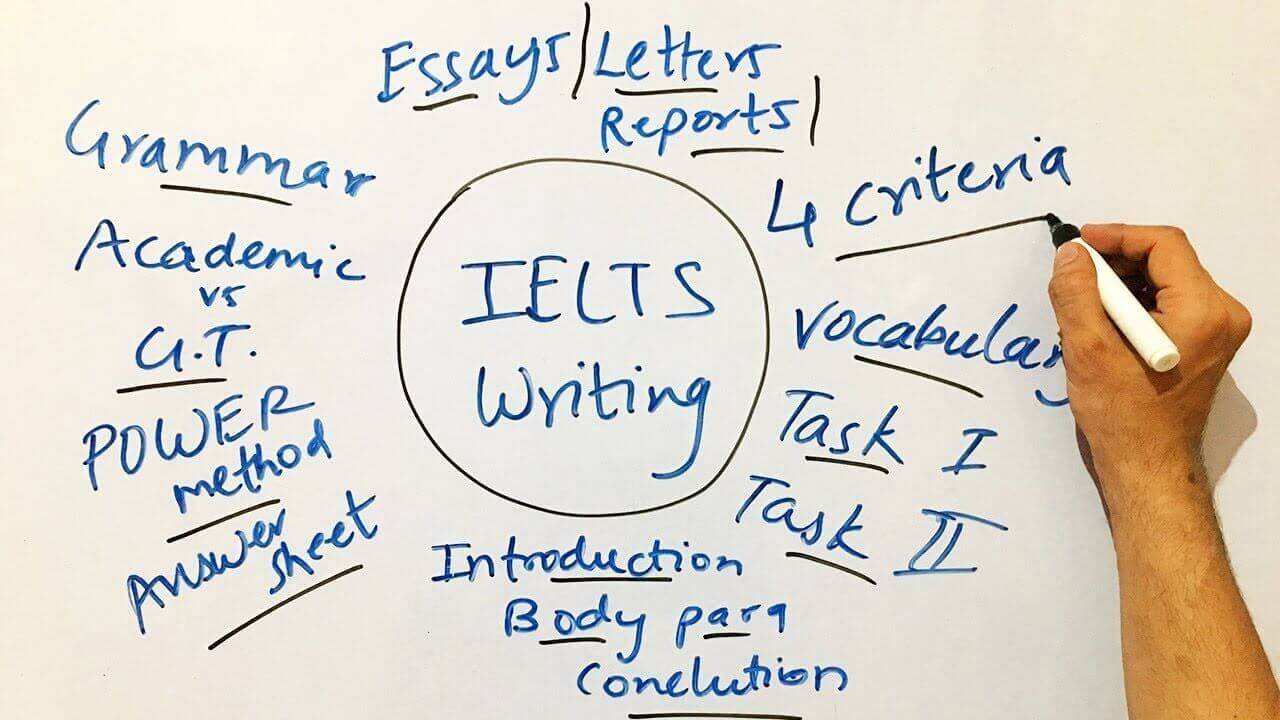Strategies for IELTS Academic Writing Task 1 (2/2)
Strategies for IELTS Academic Writing Task 1 (2/2) In our last post we looked at how to introduce, plan and structure your IELTS academic writing...
Flexible group courses for everyday communication and fluency.
Academic EnglishPrepare for university study with advanced academic language skills.
Business EnglishEnglish for professional communication in corporate and workplace settings.
Private LessonsOne-to-one lessons tailored to your goals, schedule and interests.
Language ExcursionsLearn English while exploring Cape Town with your teacher as your guide.
Get the score you need with targeted strategies and expert support.
Cambridge ExamsPrepare for the FCE or CAE with structured, high-quality training.
TOEFL PreparationBuild confidence and test skills to succeed in the TOEFL exam.
Personalised one-to-one English lessons delivered online, on your schedule.
Corporate GroupsLive online training for teams, customised to your organisation’s needs.
English for Tech ProfessionalsSelf-paced English course designed for developers, engineers, and IT teams.
Qualify to teach English in South Africa or abroad with this practical course.
Blended Certificate in TEFLCombine online study with hands-on classroom experience in Cape Town.
Learn in a historic university campus right in the city centre.
Tours and ActivitiesExplore Cape Town and make friends through weekly excursions.
Social ProgrammeJoin our schedule of fun events, outings and conversations.
Getting AroundTips and tools for navigating the city like a local.
Social and DigitalStay connected online and through our vibrant student community.
A friendly, sociable student house just a short walk from school.
Adderley StudiosModern, secure apartments in the heart of Cape Town.
HomestayLive with a local family and experience South African culture.
Hotels & AparthotelsIndependent options for comfort, privacy and flexibility.
All tuition and accommodation fees in one clear table.
Booking InformationWhat to expect before, during and after you book.
Instalment PlansFlexible payment options for long-term bookings.
User LoginView your bookings, make payments, and manage your details.
Visa options and support for international students coming to South Africa.
Insurance & TravelWhat you need to know about travel, insurance and staying safe.
MyELC AppAccess your timetable, progress and more on the student app.
Arrival and OrientationHow we help you settle in on your first day in Cape Town.
How to request certificates, transcripts, or proof of enrolment.
Terms & ConditionsThe small print — bookings, cancellations, and more.
Contact UsGet in touch with the ELC team by email, phone or WhatsApp.
Privacy PolicyHow we protect your data and respect your privacy.
What makes ELC and UCT a great place to learn English.
About the University of Cape TownSouth Africa’s leading university and home to the ELC.
About the English Language CentreWho we are, what we offer, and how we teach.
Our TeamMeet the teachers, support staff and leadership team behind ELC.
Our international quality standards and endorsements.
Media & PressNews coverage, interviews and media mentions of ELC.
TestimonialsWhat our students, partners and teachers say about us.
BlogUpdates, stories and insights from the ELC community.
Flexible group courses for everyday communication and fluency.
Prepare for university study with advanced academic language skills.
English for professional communication in corporate and workplace settings.
One-to-one lessons tailored to your goals, schedule and interests.
Learn English while exploring Cape Town with your teacher as your guide.
Get the score you need with targeted strategies and expert support.
Prepare for the FCE or CAE with structured, high-quality training.
Build confidence and test skills to succeed in the TOEFL exam.
Personalised one-to-one English lessons delivered online, on your schedule.
Live online training for teams, customised to your organisation’s needs.
English for Tech Professionals
Self-paced English course designed for developers, engineers, and IT teams.
Qualify to teach English in South Africa or abroad with this practical course.
Combine online study with hands-on classroom experience in Cape Town.
Learn in a historic university campus right in the city centre.
Explore Cape Town and make friends through weekly excursions.
Join our schedule of fun events, outings and conversations.
Tips and tools for navigating the city like a local.
Stay connected online and through our vibrant student community.
A friendly, sociable student house just a short walk from school.
Modern, secure apartments in the heart of Cape Town.
Live with a local family and experience South African culture.
Independent options for comfort, privacy and flexibility.
Use our Course Wizard to match your goals and level to the best option
Course WizardAll tuition and accommodation fees in one clear table.
What to expect before, during and after you book.
Flexible payment options for long-term bookings.
View your bookings, make payments, and manage your details.
Visa options and support for international students coming to South Africa.
What you need to know about travel, insurance and staying safe.
Access your timetable, progress and more on the student app.
How we help you settle in on your first day in Cape Town.
How to request certificates, transcripts, or proof of enrolment.
The small print — bookings, cancellations, and more.
Get in touch with the ELC team by email, phone or WhatsApp.
How we protect your data and respect your privacy.
What makes ELC and UCT a great place to learn English.
About the University of Cape Town
South Africa’s leading university and home to the ELC.
About the English Language Centre
Who we are, what we offer, and how we teach.
Meet the teachers, support staff and leadership team behind ELC.
Our international quality standards and endorsements.
News coverage, interviews and media mentions of ELC.
What our students, partners and teachers say about us.
Updates, stories and insights from the ELC community.

Like the rest of the exam, the IELTS academic writing paper takes some the skills and competencies required for successful university study and condenses them into an exam format. In this case, it requires you to deal with quantitative data in task one and construct an argument in task two. The paper is one hour, and you need to write 150 words for task one and 250 words for task two. This means you should split your time into 20 minutes for task one and 40 minutes for task two.
In task one, you will be presented with some form of quantitative or visual data and be required to summarise it in your own words. The data will usually be presented in the form of a graph or table, but in some cases it could be a process diagram or a map. You will need to write a different type of essay depending on which of these forms of visual you are writing about.
This is certainly the most common task type in the writing task one. The first thing to understand here is that the actual topic of the data really doesn’t matter – you could be describing crime statistics or the number of pictures of kittens on the internet, the way you approach the task is exactly the same. Many candidates make the mistake of trying to give their opinion (e.g. – there is too much crime in the world! Or…if only there were more pictures of kittens we would all be happier!). But actually, you won’t get any extra marks for your opinion, so it’s a waste of your time.
To write these kinds of essays, you can use a specific sentence structure which we’ll talk more about in another blog. But to decide what kind of sentence structures you need to use, first you need to answer one question: does the data show change over time. If you look at the data and you see years, months, days or hours, then you are looking at change over time and you need to use one kind of sentence structure. If not, then you are describing static data and you’ll need to use a different kind of sentence structure.
For these kinds of task, you will get some of the vocabulary for the essay from the diagram or map itself, and then will use specific vocabulary – linking words – to connect it in a way that logically describes the visual data. For a process you’ll need linking words like first, then, after that and for the map you’ll need ones that describe location – next to, above, to the north, etc.
Like all essays, you’ll need an introduction, some body paragraphs and a (short!) conclusion. Before you start writing, you need to spend a few minutes studying the visual data and deciding what you’re going to write. This means identifying the main features and making comparisons between different aspects of the data. In the case of a graph or table, you usually won’t describe all the data, so you need to choose the ones that are important. Ask yourself: what are the highest and lowest data points? Are any data points the same or very similar? Is there anything surprising about the data? For a map or process diagram, you will be more likely to describe all aspects of the visual.
In task two, you’ll be given an opinion-based statement and asked to respond to it. The response may involve discussing the issues involved and giving and justifying your opinion or describing problems and identifying possible solutions. In doing so, you will need to support what you write with logical reasons and arguments and examples from your own experience or wider general knowledge.
The range of topics that you might get a question about in task two is very broad, so there isn’t much point in trying to remember a list of answers to common essay questions. Broad topic areas might include educations, the environment, crime and punishment, the economy, transport, the media and adverting, and any number of other areas. One thing they do have in common is that they are topics which people have differing opinions on and are the subject of debate in society. This means that a person who is socially active and politically engaged could be expected to have (or be able to form) a reasonably well-informed opinion about them. They are not topics that require any specialist or technical knowledge and are intended to be equally relevant across different countries and cultures.
Like any piece of writing, you will need to plan your essay before you write. To do this you first need to decide on the structure of your essay. You will need an introduction and conclusion, and two or three body paragraphs. The content of your body paragraph will depend on what kind of essay structure you choose. The most common is a for and against essay, where you set you the arguments in favour and against the opinion statement in the task question, and then state whether you agree or disagree in your conclusion. A very similar structure is one in which you discuss the advantages and disadvantages of a statement in the task question. For a problem-solution essay, you will have one body paragraph where you identify problems resulting from the statement the task questions, and another paragraph where you suggest possible solutions to those problems.
One you have decided on your essay structure, you should spend a few minutes thinking about the content of your answer. Reflect on the statement in the task question and write a few notes before you start writing to plan what you are going to say in the body paragraphs of your essay. Decide if you agree or disagree with the statement, and the reasons why you agree or disagree.
Like the essay as a whole, each paragraph should follow a particular structure. Your paragraph will start with a topic sentence, which gives the main idea of the paragraph. You will then give supporting evidence and examples which explain, support or provide more information about the topic sentence. You should use linking words to connect your paragraphs to each other and also to link ideas within your paragraph. Finally, you will write your conclusion in which you will summarise the ideas you’ve set out in the essay and state, or restate, your opinion on the topic.
Follow our blog for specific tips and strategies on the IELTS writing and other papers.

Strategies for IELTS Academic Writing Task 1 (2/2) In our last post we looked at how to introduce, plan and structure your IELTS academic writing...

How to Write an Opinion Based Essay The UCT English Language Centre runs a Cambridge Advanced Certificate (CAE) exam preparation course. In the CAE...

Writing paragraphs I always tell students that the best essay I have ever read was written by a Pre-Intermediate student. ‘How is that possible?’...